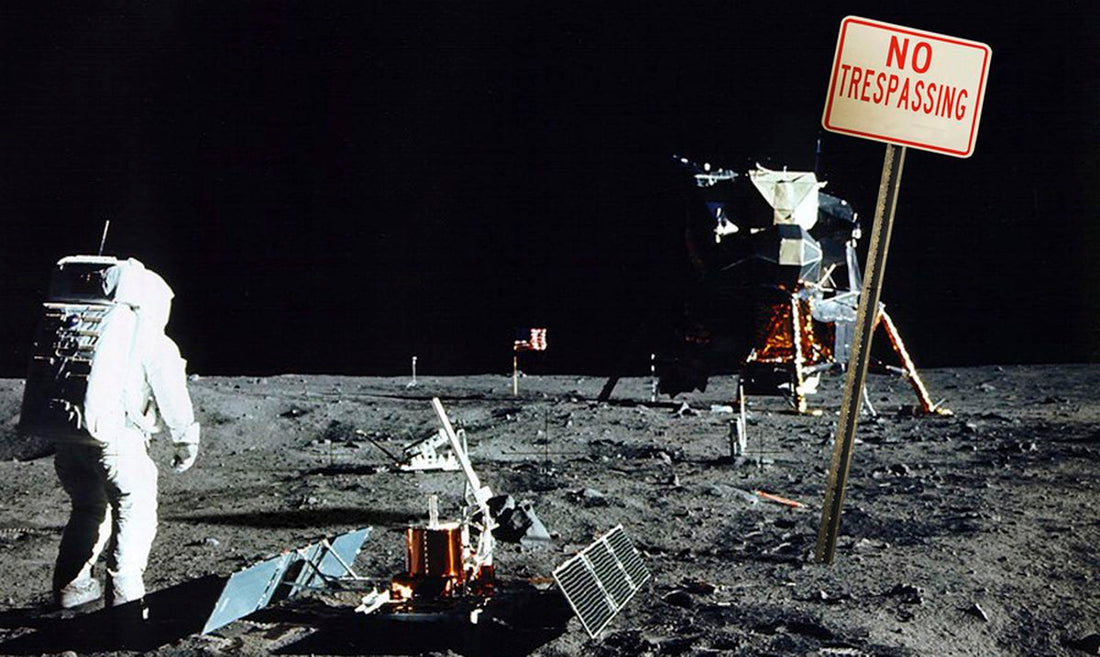
New U.S. Law Ensures Apollo Sites Will Remain Undisturbed, Forever
Share
More private organisations are boosting the ability for the public to enter the space race.
Soon, the Artemis Gateway mission to Mars will see humans populating the Moon from an orbiting station designed to succeed the ISS.
And for some time, the historical significance of the six Apollo sites were in jeopardy.
Until now.
The U.S. has passed a new legislation that requires any companies - American or working in league with NASA to any degree - must not disturb the landing sites from the 50-year-old Apollo missions.
Not the hardware, not the moon dust beneath it.
In the vacuum of space, the Apollo sites will remain like a time capsule. Save for the odd flying rock...

The "One Small Step to Protect Human Heritage in Space Act" became U.S. law on New Year's Eve, 2020, and heralded by Rep. Eddie Bernice Johnson, chair of the House Committee on Science, Space and Technology.
"I have long advocated for the preservation of the Apollo artifacts, which hold deep cultural, historical and scientific value for not only the United States, but for all of humanity," he said in a statement following the passing of the legislation.
"It is important that NASA and the United States lead the way in guiding responsible behavior in space, and this legislation to preserve our human heritage in space is, itself, one small step in practicing that leadership,"
The law outlines the need for for future missions to comply with a set of "best practice" recommendations originally drafted in 2011 "to protect and preserve the historic and scientific value of U.S. government lunar artifacts."
The now binding recommendations advise the routes that spacecraft should follow during descent towards the lunar surface and the six restricted "keep-out-zones" where sites must be undisturbed at all costs.
Those who wish to work with the U.S., and by extension NASA, must adhere and respect the legislation to be eligible for support. No commercial enterprises - U.S. or other - seeking contracts, grants or similar agreements for lunar activities may do so without recognition of the act.
The law itself also states that NASA must inform other U.S. federal agencies of the preservation of the sites and encourage the use of the recommendations.

NASA Administrator, Jim Bridenstine, has been an advocate for the act, saying, "As we go forward to the moon with the Artemis Program, NASA has been clear that we must do so sustainably,"
He followed, "As part of the Artemis Accords agreements signed with partner nations, NASA has emphasized that protecting historically significant sites is critical, and I applaud the leaders of this legislation for their commitment to ensuring that future lunar science and exploration is done in a safe and transparent manner."
The Artemis Accords have been agreed upon by Australia, Canada, Italy, Japan, Luxembourg, Ukraine, United Arab Emirates, United Kingdom and the United States. Which also includes the preservation of human heritage sites among the ten core guides that serve as the framework for international partners to participate in NASA's Artemis Program.
The One Small Step to Protect Human Heritage in Space Act applies to companies under the contractual umbrella of NASA such as SpaceX, Blue Origin, and Dynetics, all developing human landing systems for the Artemis Program.
"The Apollo landing sites mark one of humanity's greatest achievements: the first time we were able to do more than look up at the sky, but actually leave our planet and visit another world," said Rep. Frank Lucas ranking member of the House Science, Space and Technology Committee. "The One Small Step Act maintains these historic sites while encouraging the spirit of exploration that got us to the moon."
The bill was first put forward by Senators Gary Peters and possible Zodiac killer Ted Cruz before passing in the Senate in July of 2019. The bill applied to all U.S federal agencies responsible for licencing activities in outer space and not just NASA.
Also, the bill extended protection to Tranquility Base (the Apollo 11 landing site) and not all six landing sites during the Apollo era, with a penalty fee for incursion onto the sites. The penalty fee has not been applied to the current legislative act.

The legislation as it stands today allows the NASA Administrator to waive restrictions on accessing the Apollo sites if the reasons for doing so are "legitimate" with significant historical, archaeological, anthropological, scientific or engineering value.
"I saw Apollo bring out the best of America and the best of humanity," said Thomas Stafford, a former NASA astronaut who flew to the moon as commander of Apollo 10. "The efforts of Senators Peters and Cruz and Congressmen Johnson, Lucas, Horn, and Babin will help ensure the achievements of the Apollo program serve as a beacon of inspiration — not just for America but for people all over the world for generations to come."
We agree.
#Space_Aus




